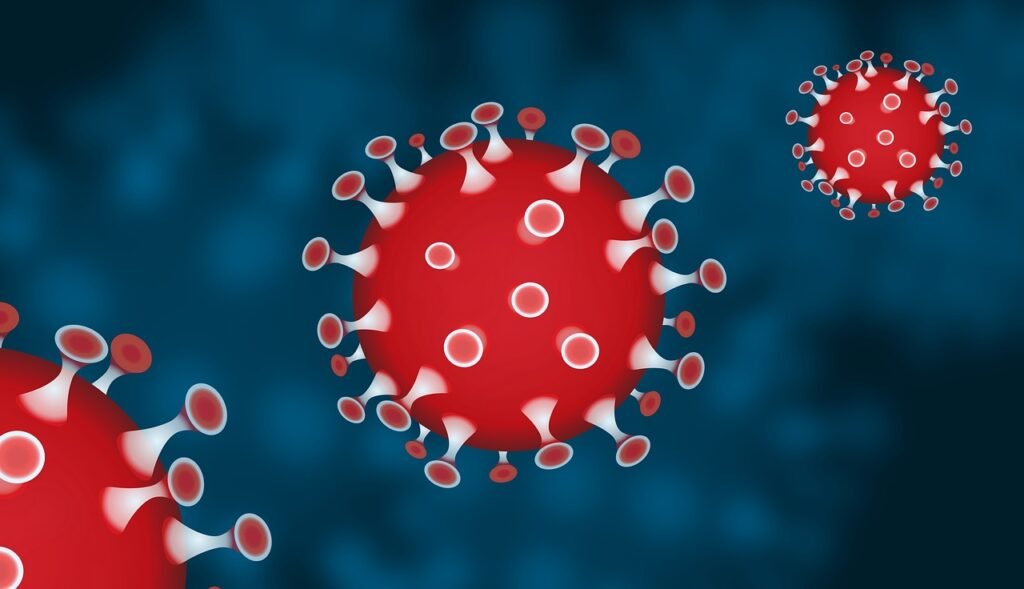If you’ve ever wondered whether alternative medicine can provide a natural boost to your immune system, you’re not alone. With the growing interest in holistic and complementary therapies, many individuals are exploring alternative options to support their overall health and well-being. In this article, we’ll explore the potential benefits that alternative medicine may offer in enhancing the immune system’s functioning, providing you with valuable insights to make informed decisions about your health.
Understanding the Immune System
Overview of the immune system
The immune system is a complex network of organs, cells, and molecules that work together to defend the body against harmful pathogens, such as viruses and bacteria. It acts as our body’s defense mechanism, constantly working to identify and eliminate foreign invaders. Understanding how the immune system functions is essential in exploring alternative medicine approaches to boost its effectiveness.
How the immune system works
The immune system consists of two primary responses: the innate immune response and the adaptive immune response. The innate immune response is the first line of defense, providing immediate but non-specific protection. It includes physical barriers like the skin, as well as cells like neutrophils and macrophages that engulf and destroy pathogens. The adaptive immune response, on the other hand, is a customized defense mechanism that develops over time. It involves lymphocytes, such as B cells and T cells, which recognize and remember specific pathogens to mount a tailored response.
Factors that can weaken the immune system
Several factors can compromise the immune system’s ability to function optimally. These include chronic stress, lack of sleep, poor nutrition, sedentary lifestyle, aging, and certain medical conditions. When the immune system is weakened, individuals become more susceptible to infections and illnesses. This is where alternative medicine approaches can play a role in supporting and boosting the immune system.
Types of Alternative Medicine
Introduction to alternative medicine
Alternative medicine encompasses a broad range of therapies and practices that do not fall within the conventional medical system. It emphasizes a holistic approach to healing, focusing on addressing the root causes of illness rather than merely treating symptoms. Alternative medicine recognizes the connection between the body, mind, and spirit and aims to restore balance and promote overall well-being.
Popular types of alternative medicine
Alternative medicine includes various modalities, each with its principles and techniques. Some commonly practiced types of alternative medicine to support immune health include:
-
Herbal remedies: Herbal medicine utilizes plant-based substances to strengthen the immune system and promote healing. Examples include Echinacea, garlic, and elderberry, which have been traditionally used for their immune-boosting properties.
-
Acupuncture and acupressure: These ancient Chinese practices involve stimulating specific points on the body to restore the flow of vital energy, known as Qi. By promoting balance and harmony within the body, acupuncture and acupressure can enhance immune function.
-
Homeopathy: Homeopathic medicine utilizes highly diluted substances to trigger the body’s natural healing response. Remedies are selected based on the individual’s unique symptoms, aiming to stimulate the immune system’s adaptive capabilities.
-
Nutritional supplements: Supplements, such as vitamin C, vitamin D, and zinc, are commonly used to support immune health. These nutrients play crucial roles in maintaining immune function and are often supplemented when dietary intake is insufficient.
-
Mind-body techniques: Practices like meditation, yoga, and tai chi focus on the connection between the mind and body. By reducing stress and promoting relaxation, these techniques positively impact the immune system’s functioning.

Evidence for the Effectiveness of Alternative Medicine
Scientific research and studies
While the field of alternative medicine has faced skepticism in the past, scientific research is increasingly exploring the efficacy of various practices. Studies have shown promising results in areas such as acupuncture, herbal medicine, and mind-body techniques. However, it is important to note that more research is needed to establish the effectiveness of alternative medicine approaches to immune system boosting conclusively.
Patient testimonials and anecdotal evidence
In addition to scientific research, anecdotal evidence and patient testimonials provide valuable insights into the benefits individuals have experienced with alternative medicine practices. These personal accounts highlight the subjective experiences of individuals who have used alternative approaches to support their immune health. While anecdotes can offer encouragement, it is crucial to combine them with scientific evidence for a comprehensive understanding.
Potential Benefits and Risks of Alternative Medicine
Benefits of using alternative medicine to boost the immune system
One of the main advantages of alternative medicine is its focus on holistic well-being. By addressing various aspects of health, such as lifestyle, diet, and mental well-being, alternative medicine approaches can have a positive impact on the immune system. Additionally, alternative therapies often have fewer side effects compared to conventional medications, making them appealing for individuals looking for natural and gentle interventions.
Potential risks and limitations of alternative medicine
While alternative medicine offers potential benefits, it is essential to approach it with caution. Some alternative practices may lack scientific evidence or have inconsistent results. Furthermore, individuals may delay or forego conventional medical treatments in favor of alternative therapies, which can have serious consequences, especially in the case of severe infections or chronic conditions. It is important to consult healthcare professionals for guidance and to ensure a balanced approach to immune health.

Integrating Conventional and Alternative Medicine
Using alternative medicine as a complementary approach
Integrative medicine recognizes the value of combining conventional and alternative approaches. Rather than viewing them as mutually exclusive, integrative medicine seeks to incorporate the best of both worlds. By integrating conventional medical treatments with evidence-based alternative therapies, individuals can benefit from a comprehensive approach that optimizes immune health.
Coordinating with healthcare professionals
When considering alternative medicine, it is crucial to involve healthcare professionals in the decision-making process. They can provide guidance, evaluate potential interactions or contraindications, and help create a well-rounded treatment plan. Sharing information about alternative practices with healthcare providers ensures a collaborative and informed approach to immune health.
Precautions and Safety Considerations
Consulting with a qualified practitioner
To minimize risks and maximize the benefits of alternative medicine, it is important to consult with a qualified practitioner. Whether it is an herbalist, acupuncturist, or homeopath, choosing a professional with appropriate training and experience ensures safe and effective treatment. They can evaluate individual needs, consider potential interactions, and provide personalized recommendations.
Ensuring product quality and safety
When using alternative therapies, it is crucial to ensure the quality and safety of products and supplements. Look for reputable brands, consider certifications or third-party testing, and follow recommended dosage guidelines. Adhering to these practices minimizes the risk of contamination or ineffective treatments.
Avoiding potential interactions and side effects
Individuals should be aware of potential interactions between alternative therapies and conventional medications. Certain herbs, supplements, or practices may interfere with prescribed medications, affecting their efficacy or safety. Communicating openly with healthcare providers and providing a comprehensive overview of all treatments being used can help avoid potential interactions and mitigate any risks.

Natural Lifestyle Practices to Support Immune Health
Maintaining a balanced diet
A nutritious and balanced diet is crucial for supporting immune health. Focus on consuming a variety of fruits, vegetables, whole grains, lean proteins, and healthy fats. These provide essential nutrients that promote immune function, such as antioxidants, vitamins, and minerals. Additionally, staying adequately hydrated helps flush out toxins and supports overall health.
Regular exercise and physical activity
Engaging in regular physical activity has been linked to a stronger immune system. Exercise improves circulation, reduces inflammation, and boosts the production of immune cells. Aim for at least 150 minutes of moderate-intensity exercise per week or consult with a healthcare professional for personalized recommendations.
Adequate sleep and stress management
Sufficient sleep is vital for immune health as it allows the body to regenerate and repair itself. Aim for 7-9 hours of quality sleep each night. Additionally, managing stress through techniques like meditation, deep breathing, and relaxation exercises can help reduce the impact of stress hormones on the immune system.
Supportive social connections
Maintaining positive social connections can have a profound impact on overall well-being, including immune health. Building and nurturing relationships provides emotional support, reduces stress, and boosts overall mood. Joining social groups, volunteering, or staying in touch with loved ones are all practices that contribute to a strong support network.
Combining Alternative and Conventional Approaches
Seeking professional guidance
When combining alternative and conventional approaches, it is important to seek professional guidance. Healthcare providers specializing in integrative medicine can provide valuable insights and help develop an individualized treatment plan that addresses specific immune health needs. They can help navigate potential interactions, monitor progress, and optimize treatment outcomes.
Creating an individualized treatment plan
Each individual’s immune health needs are unique. By creating an individualized treatment plan, healthcare professionals can tailor recommendations to specific circumstances and goals. This ensures a holistic approach that integrates both conventional and alternative therapies in the most effective and safe manner.

Conclusion
In conclusion, alternative medicine approaches hold promise in supporting and boosting the immune system. With a focus on holistic well-being, practices like herbal remedies, acupuncture, and mind-body techniques offer potential benefits for immune health. However, it is crucial to approach alternative medicine with caution, considering the limitations and potential risks. By integrating conventional medical treatments, collaborating with healthcare professionals, and adopting natural lifestyle practices, individuals can optimize their immune health in a comprehensive and informed manner.


